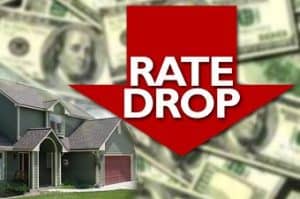To understand how interest rates will change in the future, let’s look at the trends we’ve seen since 2010: Interest rates fell to historic lows, and buyers enjoyed those low rates on new mortgages. Rates bottomed out at an average of 3.66% in 2012, then rose only slightly in the years since. In 2015, the annual average rates rested at 3.85%.
What’s next? Interest rate predictions for 2016 initially said we’d finally see them start rising again. But several events have changed that outlook. Between the surprising Brexit vote and the tumultuous presidential election cycle, homebuyers need to look at re-evaluated interest rate predictions before locking in a mortgage.
To guide buyers for the rest of 2016 and beyond, we turned to financial experts — from New York, NY, to Los Angeles, CA — to share their insights, predictions, and best educated guesses. If you’re looking to buy a home soon, check out what interest rates could look like on your mortgage.
















 Accessibility
Accessibility